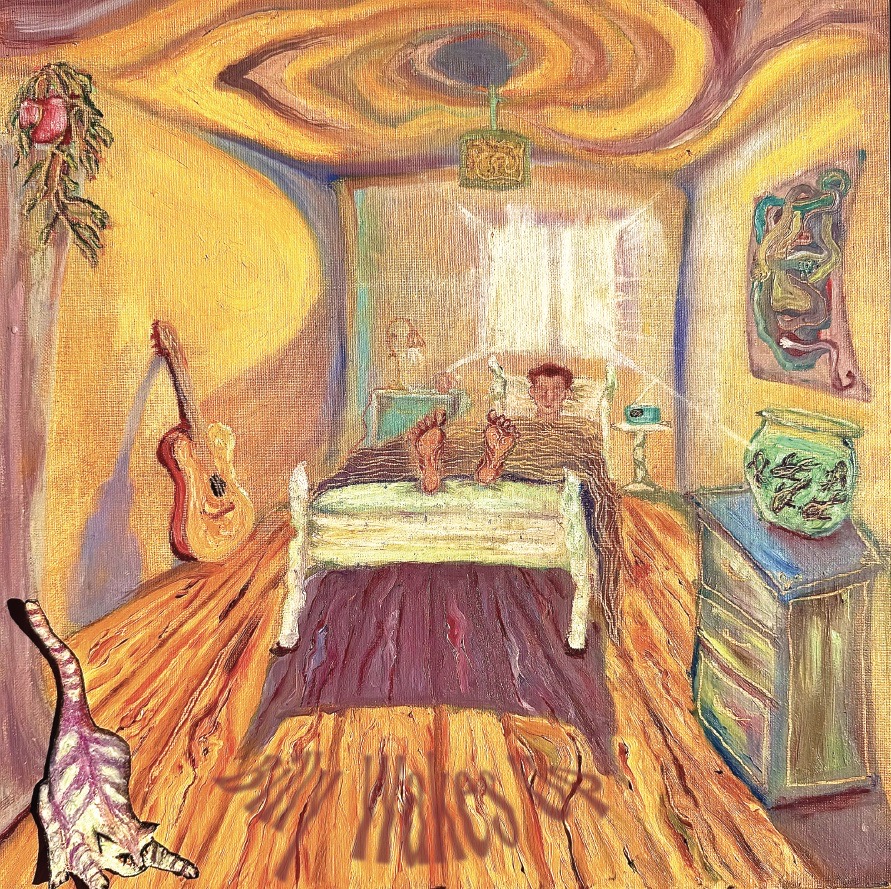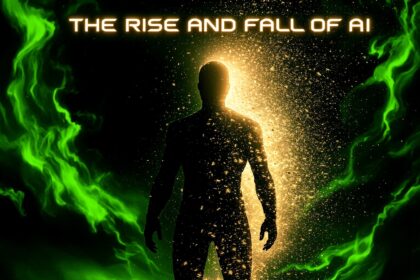London’s rising artist Billy Bobak makes an ambitious and deeply human debut with Billy Wakes Up, a concept album that reveals a storyteller with cinematic ambition. Set for release on May 10, 2025, the record is the first in a planned triptych, to be followed by Billy Remembers Dreaming and Billy Hits Snooze. Thematically and musically, this first chapter captures the messy wonder of adolescence and the slow, sometimes painful process of self-awareness that follows. Working with the Reading University Orchestra and Choir, producer Dae Lee, guitarist Nick Fitch, and vocalist Aya Elmansouri, Bobak creates a soundscape that’s intimate and symphonic — a vivid reflection of youth in transition. From Beatles-inspired optimism to Bowie-esque experimentation, Billy Wakes Up is a kaleidoscope of influences that still feels unmistakably original.
The album opens with “Intro (Breakfast?),” a whimsical and atmospheric prelude that introduces the orchestral motif that recurs throughout the record. It’s not just an introduction, but an awakening, in every sense of the word. The chatter of strings and choir voices feels like the first rays of morning sunlight hitting a cluttered student room, symbolising the beginning of self-discovery. The Reading University Orchestra’s lush arrangement creates a sense of grandeur, while subtle humour and texture — a clink of dishes, a half-asleep hum — make the scene relatable. It’s a moment that sets the tone for what follows: an album that’s as introspective as it is playful, grounded in everyday chaos but reaching for something transcendent.
“Saving Grace” and “Most Nights” form the emotional backbone of the record’s first act, revealing Bobak’s knack for balancing melody and melancholy. “Saving Grace” echoes early Beatles-era pop with its bright chord progressions and layered harmonies, but the lyrics reveal a sense of confusion that’s quintessentially postmodern — a portrait of a young man seeking meaning in a world that offers distraction instead of direction. “Most Nights,” on the other hand, leans into the vulnerability of early adulthood. Its arrangement is sparse at first — just voice and acoustic guitar — before the full band builds in, echoing the way emotions swell in the quiet hours of uncertainty. You can hear Bowie’s theatrical edge in Bobak’s phrasing and Elvis Costello’s dry wit in his wordplay. Together, they form a portrait of restless youth caught between bravado and doubt.
Then comes “Wakey Wakey,” the first major turning point. It’s an indie-pop explosion that feels like a morning after — the sudden clarity that follows chaos. The drums hit harder here, the guitars brighter, and Aya Elmansouri’s backing vocals shimmer through the mix. It’s the kind of song that captures the confusion and thrill of realising adulthood has already begun. Following it is “He’s Not There,” a song steeped in regret and memory. There’s a narrative subtlety here — Bobak sings about absence as though it’s a character, not an emotion. The track’s minimalist production allows his voice to take centre stage, showing off the tenderness and slight grit that make him so relatable.
“Rush & Touch” breaks the emotional tension with experimentation — a percussive playground that literally uses kitchen utensils as instruments. It’s a nod to Blur’s cheeky inventiveness, full of rhythmic surprises and creative layering. The energy is contagious, but there’s still something reflective in the lyrics, a sense of searching for connection in the noise. From there, the record drifts gracefully into “Respite,” one of the orchestral high points. The Reading University Orchestra and Choir return, transforming the song into something almost cinematic. It’s lush, melancholic, and deeply human — the sonic equivalent of catching your breath in the middle of a storm.
“Indo Girls” captures the disorienting freedom of travel, a theme that runs through much of Billy Wakes Up. Bobak paints vivid imagery of foreign streets, late-night bars, and fleeting connections — the intoxicating mix of discovery and loneliness that defines early adulthood. Aya Elmansouri’s ethereal backing vocals act as an emotional guide through the haze, while the orchestral textures lend the track an expansive, filmic quality. It’s a standout moment, full of both wanderlust and wistfulness. “Make Me a Jess” follows, with Nick Fitch’s guitar soaring through the mix like a prayer. The track’s bittersweet energy feels like something from The Beatles’ Abbey Road era filtered through 21st-century anxieties — catchy, heartfelt, and just a little bit existential.
As the album nears its close, “Floor Six” and “Soi Cowboy” dive deeper into the contradictions of self-discovery. “Floor Six” feels like a dream sequence, swirling in reverb and echo — a reflection on mistakes, identity, and the small decisions that shape us. “Soi Cowboy,” meanwhile, is the perfect closer — a swaggering yet introspective finale that captures the duality of the album’s title. Here, Bobak’s lyrical wit and narrative instincts shine. He sings about the seduction of chaos and the cost of chasing experience, and yet the song never feels cynical. Instead, it ends with a sense of acceptance — a musical awakening that ties back to the record’s opening moments.

What makes Billy Wakes Up so captivating isn’t just its sound, but its structure. It’s an album that unfolds like a film, complete with acts, transitions, and emotional arcs. The involvement of over 50 musicians from the Reading University Orchestra and Choir gives it a sweeping scale, while Bobak’s personal storytelling keeps it grounded. Producer Dae Lee’s hand is evident in the album’s clarity — every instrument has space to breathe, every emotion lands with precision. The contrast between symphonic arrangements and lo-fi experimentation (like the utensil percussion of “Rush & Touch”) mirrors the emotional push and pull of growing up: messy, beautiful, confusing, and absolutely alive.
By the time the final notes fade, Billy Wakes Up feels less like a debut and more like a statement of intent. It’s an album about consciousness — about waking up not just from sleep, but from naivety, distraction, and fear. Billy Bobak has managed to turn coming-of-age into something intimate and cosmic, finding grandeur in the mundane and melody in the madness.
For more information, follow Billy Bobak:
SPOTIFY – INSTAGRAM







